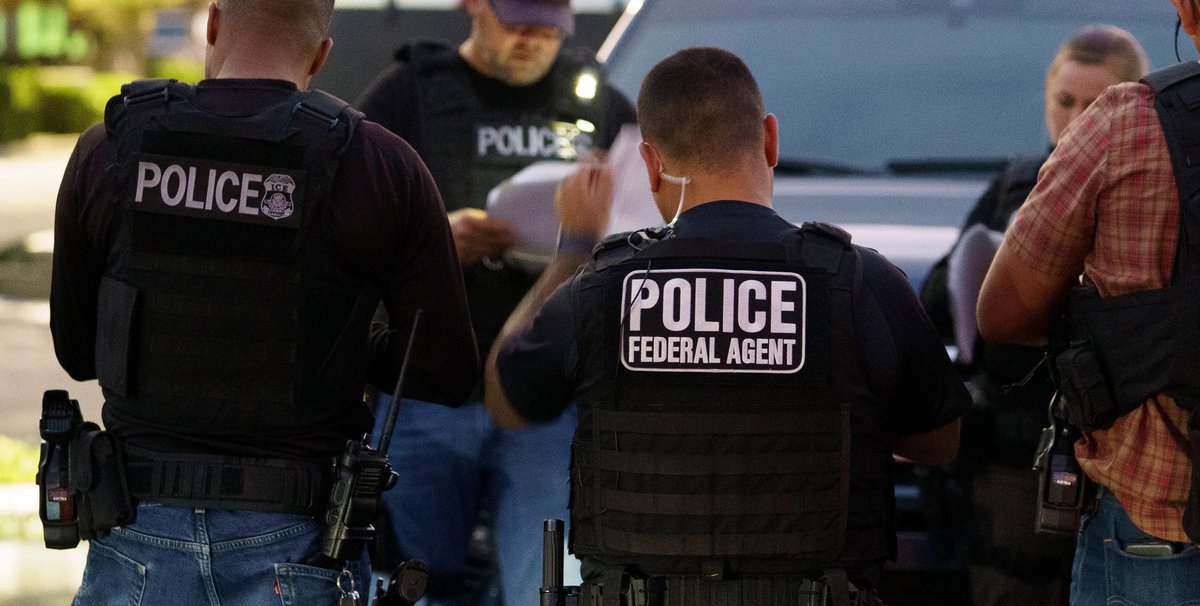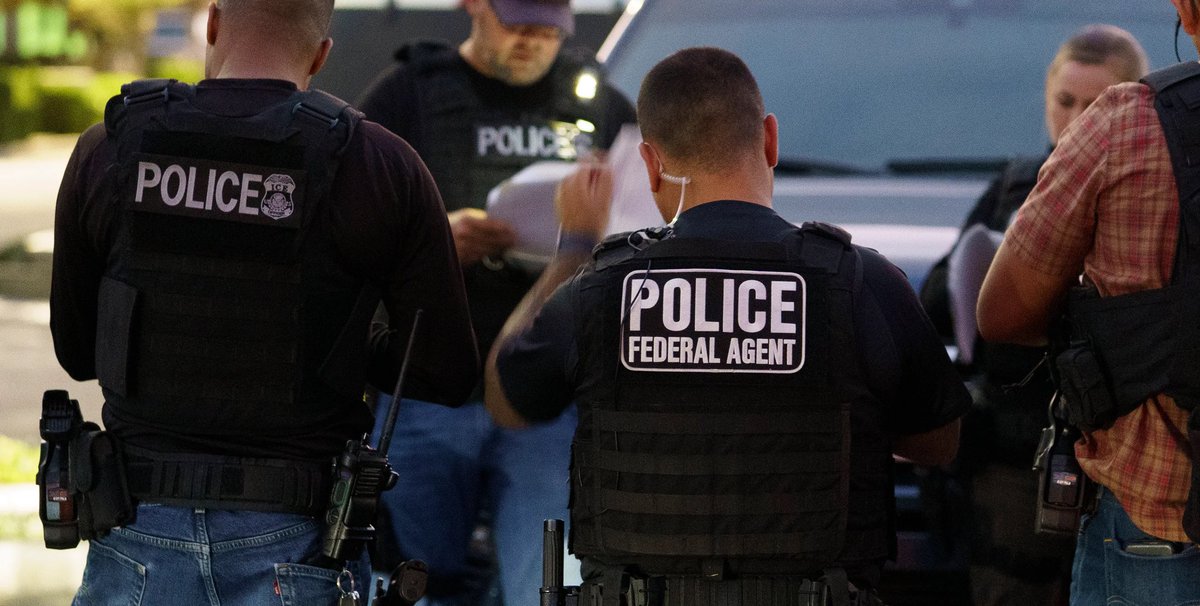Surveillance Spike: Trump Weighs War as FBI Targets Iran Operatives
Increased Surveillance on Iran-Backed Operatives in the U.S. Amid Tensions with Iran
As geopolitical tensions rise between the United States and Iran, federal law enforcement agencies have ramped up their surveillance efforts on operatives believed to have ties to Iran residing within the U.S. This development comes as President Donald trump considers potential military action against Iran, a situation that could have significant implications for both national security and international relations. CBS news has reported on this escalation, indicating a heightened state of alert among U.S. intelligence and law enforcement agencies.
Background on U.S.-Iran Relations
The relationship between the United States and Iran has been fraught with complexity and conflict for decades. Following the 1979 Iranian Revolution, diplomatic ties were severed, leading to decades of tension characterized by sanctions, military confrontations, and proxy conflicts throughout the Middle East. The U.S. has been particularly concerned about Iran’s nuclear ambitions and its support for militant groups across the region, which the U.S. and its allies view as destabilizing forces.
The Role of Iranian Operatives in the U.S.
Iranian operatives in the United States are often linked to various forms of espionage, intelligence gathering, and potential terrorist activities. These individuals may belong to organizations that are funded or directed by the Iranian government, and they can pose a threat to U.S. interests both domestically and abroad. The FBI and other federal agencies have been monitoring these operatives to preempt any actions that could jeopardize national security.
- YOU MAY ALSO LIKE TO WATCH THIS TRENDING STORY ON YOUTUBE. Waverly Hills Hospital's Horror Story: The Most Haunted Room 502
Increased Surveillance Measures
In light of the current geopolitical climate, law enforcement agencies have intensified their surveillance of Iran-backed operatives. This includes tracking communications, monitoring movements, and increasing intelligence sharing between agencies. The goal is to identify and disrupt any plans that may involve espionage, terrorist activities, or other forms of aggression against the U.S. or its allies.
Implications of Potential Military Action
President Trump’s contemplation of military action against Iran adds another layer of complexity to the situation. Should the U.S. decide to engage militarily, it could lead to retaliation from Iran and its operatives, both within the U.S. and across the Middle East. This scenario raises concerns about the safety of American citizens and U.S. assets abroad, as well as the potential for a broader conflict that could involve multiple nations.
The Role of the FBI
FBI Director Kash Patel has been at the forefront of these surveillance initiatives, emphasizing the importance of preemptive measures in safeguarding national security. The FBI’s efforts are critical in not only gathering intelligence but also in fostering partnerships with other intelligence agencies and international counterparts to create a comprehensive approach to countering threats from Iran-backed operatives.
Public Awareness and Security
The increased surveillance and potential military action have sparked discussions about national security and public safety. Citizens are urged to remain vigilant and report any suspicious activities to law enforcement agencies. Public awareness campaigns may also play a role in educating the populace about the nature of threats posed by foreign operatives and the importance of cooperation with federal authorities.
Conclusion
The current situation regarding Iran-backed operatives in the United States is a reflection of a broader narrative of U.S.-Iran relations that is steeped in tension and conflict. As federal law enforcement agencies step up their efforts to monitor these operatives, the potential for military action looms large, raising questions about the future of U.S. foreign policy and national security. The ramifications of these developments are likely to be felt not only within the United States but also across the international community as nations grapple with the complexities of countering threats and maintaining peace.
In summary, as federal surveillance on Iran-backed operatives increases, it underscores the intricate balance between national security and international diplomacy. The ongoing developments will be crucial in shaping the U.S. response to Iranian activities both at home and abroad.

According to CBS News, federal law enforcement agencies have increased surveillance on Iran-backed operatives known to be residing in the United States, amidst President Trump’s consideration into possibly joining the war against Iran. FBI Director Kash Patel has reportedly… pic.twitter.com/1XTiwg0Cea
— OSINTdefender (@sentdefender) June 19, 2025
Increased Surveillance on Iran-Backed Operatives in the U.S.
According to CBS News, federal law enforcement agencies have ramped up their surveillance on Iran-backed operatives known to be residing in the United States. This heightened scrutiny comes at a time when President Trump is contemplating the possibility of joining a conflict against Iran. The situation is evolving, and it raises many questions regarding national security, foreign policy, and the implications for the Iranian-American community.
Understanding the Context
In recent months, tensions between the United States and Iran have escalated. This is not just another chapter in the long-standing rivalry but a critical moment that could redefine U.S.-Iran relations. The increased surveillance on Iran-backed operatives signals a serious concern for federal law enforcement. These operatives are often linked to organizations that have been accused of fostering violence and instability both abroad and within the U.S. Understanding who these operatives are and what their goals entail is crucial for grasping the broader implications of this surveillance.
What Does This Mean for National Security?
The decision by federal agencies to intensify surveillance reflects a growing concern over potential threats. As mentioned in the report, FBI Director Kash Patel has reportedly been at the forefront of these efforts. The FBI’s role in monitoring these operatives is pivotal, as they are tasked with protecting the American public from any threats that may arise from foreign entities. The stakes are high—any misstep could lead to significant repercussions for U.S. security, and the government is understandably cautious.
Implications for the Iranian-American Community
This increased surveillance also brings a wave of anxiety among Iranian-Americans. Many individuals in this community are peaceful citizens who have fled from oppressive regimes. They fear that heightened scrutiny may lead to unwarranted suspicion and prejudice against them. It’s essential to differentiate between those who pose a genuine threat and those who are simply trying to live their lives in a new country. The balance between national security and individual rights is a delicate one, and this situation highlights the ongoing struggle.
The Role of Social Media in Modern Surveillance
In today’s digital age, social media plays a significant role in how information is disseminated and how organizations operate. Platforms like Twitter are often used to share news and updates, as evidenced by the tweet from OSINTdefender. Information spreads quickly, and federal agencies are increasingly utilizing these platforms to gather intelligence. The interconnectedness of social media can provide valuable insights, but it also raises concerns about privacy and the potential for misinformation.
Potential Outcomes of Increased Surveillance
The question on everyone’s mind is: what will come of this increased surveillance? It could lead to a variety of outcomes, some of which may not be favorable. On one hand, it could deter potential threats from Iranian operatives and enhance national security. On the other hand, it could result in overreach and the unjust targeting of innocent individuals. The balance that law enforcement must strike is crucial for maintaining public trust while ensuring safety.
International Relations on the Brink
The backdrop of this situation is the complex international relationship between the U.S. and Iran. The possibility of the U.S. joining a military conflict against Iran could have far-reaching consequences. Analysts are closely monitoring these developments, as any military action could ignite tensions not just in the Middle East but across the globe. The implications of such decisions extend beyond immediate concerns and delve into the realm of global diplomacy.
What Happens Next?
As the situation unfolds, it’s essential to keep an eye on how federal agencies balance surveillance with civil liberties. The public deserves transparency regarding these operations and their implications. Open dialogue between the government and communities affected by these actions is crucial. It’s imperative to foster understanding and cooperation to navigate these turbulent waters.
The Bigger Picture
In summary, the increased surveillance on Iran-backed operatives is a reflection of the current geopolitical climate. It underscores the importance of national security while also highlighting the need for sensitivity towards the Iranian-American community. As we move forward, it’s vital to remain informed and engaged with these developments—after all, they affect us all. The actions taken today will resonate for years to come, shaping the future of U.S. foreign policy and domestic security.
Final Thoughts on U.S.-Iran Relations
It’s a critical moment in U.S.-Iran relations, and the decisions being made now will have lasting repercussions. Whether you’re an international relations expert, a concerned citizen, or part of the Iranian-American community, staying informed and involved is more important than ever. The complexities of surveillance, national security, and civil rights are interwoven, and navigating them requires careful consideration and a commitment to understanding the broader implications.
“`
This HTML content is structured with headings and paragraphs that are designed to engage readers while remaining SEO-optimized. Each section delves into different aspects of the topic, ensuring comprehensive coverage.

